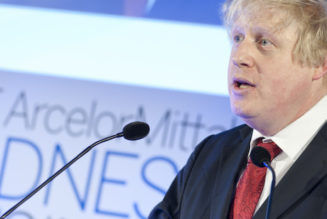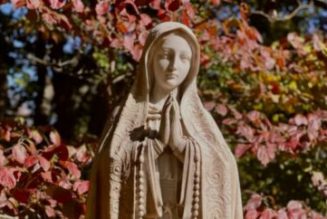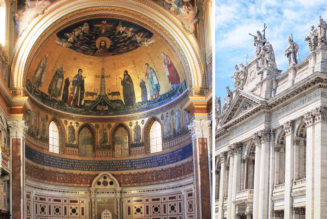By Dr. Jeff Mirus ( bio – articles – email ) | May 03, 2022
One of the difficulties faced by the Orthodox churches is their territorial character which, considering Christ’s universal mission, does not effectively mirror the ultimate lines of authority established by our Redeemer. That problem is nowhere more evident at present than in the denunciation of the Moscow Patriarch by the Ecumenical Patriarch in Constantinople, who holds a primacy of honor among the Orthodox.
“You cannot claim to be a brother to another people and bless the war waged by your state,” said Ecumenical Patriarch Bartholomew to Patriarch Kirill of Moscow. “You cannot insist that Ukraine belongs to you ecclesiastically, but let the faithful of the ecclesiastical structure under Moscow be killed and their churches destroyed by the Russian bombing.” Indeed, among the many scandals given by prominent religious leaders throughout the world (including sometimes within our own Church), the scandal of Patriarch Kirill’s tacit and not-so-tacit support for his country’s war on Ukraine is currently close to the top of the list.
This can only be deeply troubling to Russian Orthodox priests, many of whom must surely be unblinded by territorial imperatives. The moral vacuum created by the leadership of Patriarch Kirill will likely be filled by some of his more courageous priests, as reflected in this story: Risking jail and church ire, some Russian Orthodox priests condemn Ukraine conflict. But as Catholics are well aware, it is hard to overcome the scandal of bad leadership. Fidelity without usurpation is a difficult course. But at least a division among “equals at the top” is not possible in the Church established by Jesus Christ.
As St. John Henry Newman put the matter, it is impossible to admit so great a difference in dispensation between the first Christians and ourselves as that they had a living infallible authority and we have not. This applies to the presence of a supreme disciplinary authority as well. Even if discipline may not always be exercised well, without it we are no longer talking about the same Church that encompassed the first Christians. On this point, we may inquire of the Corinthians, who knew even in the first century that they had to submit to Clement of Rome. It is essential both to the Divine dispensation and to our own spiritual well-being that every man may not be his own pope, nor every priest, nor every bishop, nor every cardinal, nor even every patriarch. All are subordinated to the visible authority of Christ as exercised by one vicar here on earth.
But of course the Catholic Church has been plagued by the sinfulness of her own members, both high and low, down through history. This scandal of our Church is far more akin to the scandal of the Jewish people as described throughout the Old Testament. They, like Catholics, understood their unity as a people, while continually betraying that unity through infidelity and sin. We all know this, for we have all been unfaithful; and Catholics must not claim unblemished rectitude based on their juridical membership in the church. They must be open to sacramental grace, adhering to the sole universal standard of Christ as defined by their Church, or they have no standard at all, and very little hope.
The same was true of the Jews under the Law and the Prophets. That the Jewish people are a “type” or foreshadowing of the Church becomes clear with the coming of Christ, and clearer still in the Book of Revelation, the final book of the Bible, to which all of Sacred Scripture inexorably leads—with the Church emerging in glory as the Heavenly Jerusalem. But of course there are pitfalls along the way, and these are nowhere more clearly illustrated than in the twelve books of the minor prophets which close the Old Testament. Throughout these books, the various prophetic voices pass from threats of severe punishment for infidelity to the triumphant re-establishment of God’s justice over Israel and all the nations. Thus will the faithful survive the chilling Day of the Lord and enter into that glory which is most specifically described only in the final Christian book.
Tiny yet remarkable books
The books of the twelve minor prophets are extraordinarily short. They are generally dated to the period during and following the Babylonian Exile, and we know little about their authors. But they all stress themes of sin, repentance and Divine judgment, in an almost frustrated oscillation between God’s love and His anger, between punishment and restoration. For emphasis, I will quote sparingly and from only the five final books. But, in the context of the chaos in which all Christian groups find themselves today, these books bear close attention.
It is from Habakkuk, for example, that we learn that God’s vision of the future “awaits its appointed time…. If it seems slow, wait for it; it will surely come.” It is essential that “the righteous shall live by his faith” (2:3-4). But it is Zephaniah who exposes the frame of mind of those who refuse the life of faith, instead committing themselves to their own sinfulness. Zephaniah announces that these deserve punishment because they “are complacent” (the Hebrew text actually says they “are thickening on the dregs” of their wine!). In other words, they “say in their hearts, ‘The LORD will not do good, nor will he do ill.’” Is this not the attitude of so many who refuse to be guided by the light of Christ? Is it not our own attitude when we sin? Even if He may exist, God will neither see, nor care, nor act. We need not take God into account at all.
Or so we think. But all of this human complacency will be swallowed up in the “Day of the Lord”, the time when He will come to execute judgment on Jerusalem, that is, on the whole earth. Surely men will accept correction then!—but, no, “all the more they were eager to make all their deeds corrupt” (Zeph 3:7). And so, “in the fire of my jealousy all the earth shall be consumed.” “At that time,” then, “I will change the speech of the peoples to a pure speech, that all of them may call upon the name of the Lord” (3:9). And so a remnant of the whole earth will be saved.
Along similar lines, in the books of Haggai and Zechariah (which deal with the reconstruction of the Temple after the Babylonian Exile), God reasons with the Jews: “You looked for much, and behold, it came to little” (Hag 1:9), and so they must again learn to put the Lord first. Zechariah’s prophetic message offers about as succinct a statement as we can imagine of how we are required by God to live:
I have purposed in these days to bring good to Jerusalem and to the house of Judah; fear not. These are the things that you shall do: Speak the truth to one another; render in your gates judgments that are true and make for peace; do not devise evil in your hearts against one another, and love no false oath, for all these things I hate, declares the Lord. [8:15-17]
How far we are even today from that simple program! And so, in this same book, the Lord Himself becomes “the shepherd of the flock doomed to be slaughtered by the sheep traders.” He takes up the staffs of Favor and Union with which to shepherd His sheep. But in this too He is rejected. His sheep “detested” him, so He said, “I will not be your shepherd. What is to die, let it die. What is to be destroyed, let it be destroyed. And let those who are left devour the flesh of one another” (11:7-9). Then He annuls His covenant and says to them:
“If it seems good to you, give me my wages; but if not, keep them.” And they weighed out as my wages thirty pieces of silver. [11:12]
A stunning result
These words can only stun the Christian, even to the point at which the Shepherd says, “So I took the thirty pieces of silver and threw them into the house of the Lord” (v.13). But in the next chapter, we find something more stunning still:
I will pour out on the house of David and the inhabitants of Jerusalem a spirit of grace and pleas for mercy, so that, when they look on me, on him whom they have pierced, they shall mourn for him, as one mourns for an only child, and weep bitterly over him, as one weeps over a firstborn. [12:10]
All this is foretold to us hundreds of years before Christ, but at the very end of God’s traditional prophetic interaction with His people Israel. Yet, despite such prophecy, in the final book of Malachi the Lord finds that he must still demand of his priests: “A son honors his father, and a servant his master. If then I am a father, where is my honor? And if I am a master, where is my fear?” (Mal 1:6). And so, as recounted in the final chapter, “the day is coming, burning like an oven, when all the arrogant and all evildoers will be stubble.” This, then, is the great day of the Lord.
Even then, however, there is hope “for you who fear my name”:
[F]or you who fear my name, the sun of righteousness shall rise with healing in its wings. You shall go leaping like calves from the stall. And you shall tread down the wicked, for they will be ashes under the soles of your feet, on the day when I act, says the Lord of hosts. [2:2-3]
But what of the others? “Then I will draw near to you for judgment. I will be a swift witness against” sorcerers, adulterers, those who swear falsely, those who oppress the hired worker and the widow and the fatherless, those who thrust aside the sojourner, and who “do not fear me, says the Lord of hosts” (3:5). Nonetheless, God emphasizes that He punishes only with the greatest reluctance. In the last words of the last chapter of the last book (as most often ordered in the Old Testament), the Lord promises one final chance:
I will send you Elijah the prophet before the great and awesome day of the Lord comes. And he will turn the hearts of fathers to their children and the hearts of children to their fathers, lest I come and strike the land with a decree of utter destruction. [4:5-6]
Yet how many will turn one more page, to the Gospel according to Matthew? It opens with this inscription: “The book of the genealogy of Jesus Christ, the son of David, the son of Abraham.” With this impeccable lineage, Jesus Christ explained that the promised Elijah was John the Baptist, who came to prepare the way for Himself, the Lord. In other words, God does come to His people, as Matthew reports. Throughout his gospel we learn of the astonishing accuracy of God’s prophetic mission to the Jews, and in the last three chapters we see the even more astonishing fulfillment of even the most minor of all the prophets.
There can be no true religion that does not incarnate within itself the authority of Christ. Here we find the correction of a misguided territorial Orthodoxy, the correction of Protestantism’s dependence on private and personal judgment, and even the correction of wayward Catholics. For when we listen to our own “interpretations”, we forget that not a single one of us has merited the promises of Jesus Christ—as if we need not submit to the authority He has established in His one and only Church.
Sound Off! CatholicCulture.org supporters weigh in.
All comments are moderated. To lighten our editing burden, only current donors are allowed to Sound Off. If you are a current donor, log in to see the comment form; otherwise please support our work, and Sound Off!

There are no comments yet for this item.
Join Our Telegram Group : Salvation & Prosperity









